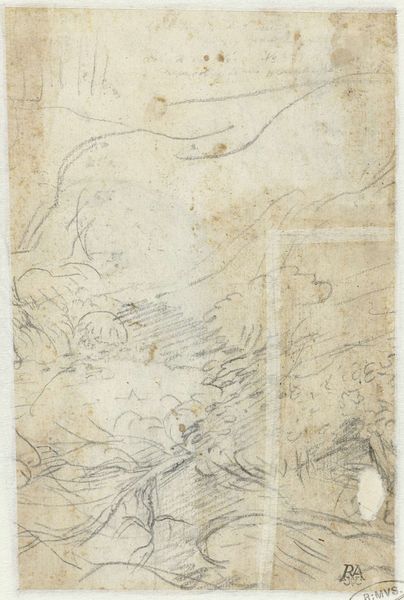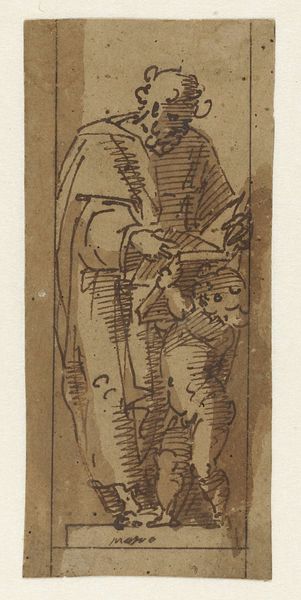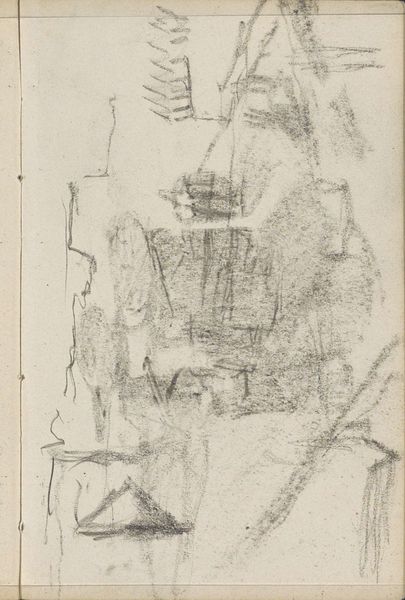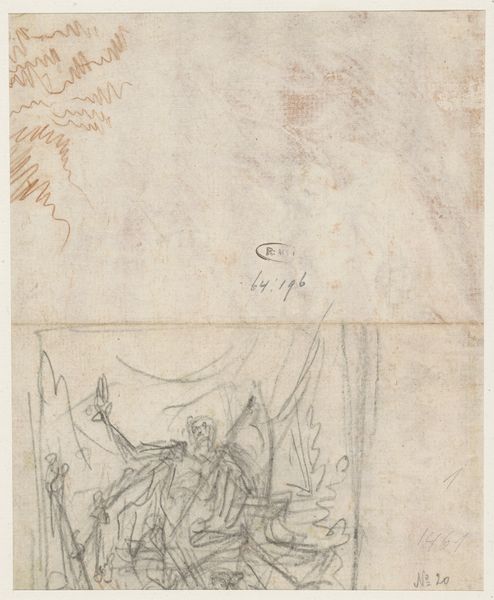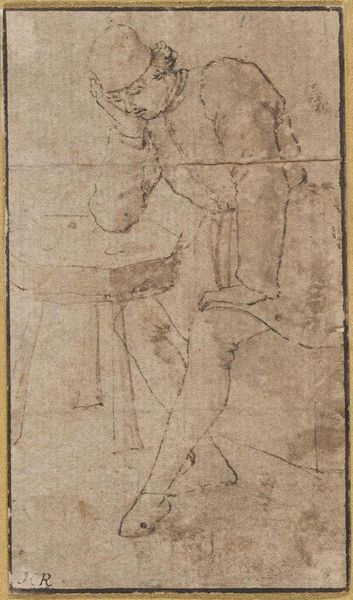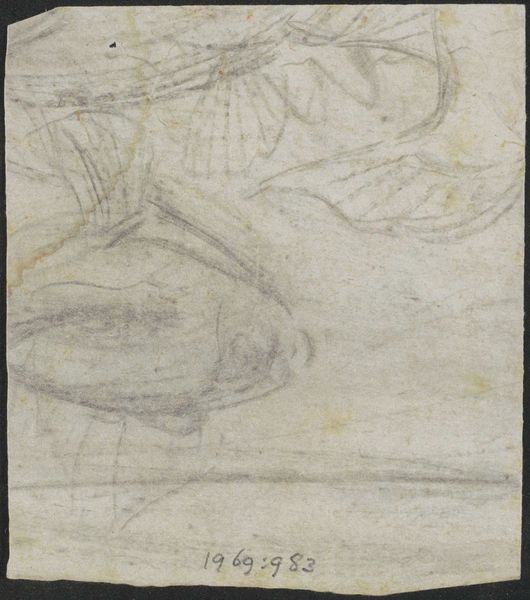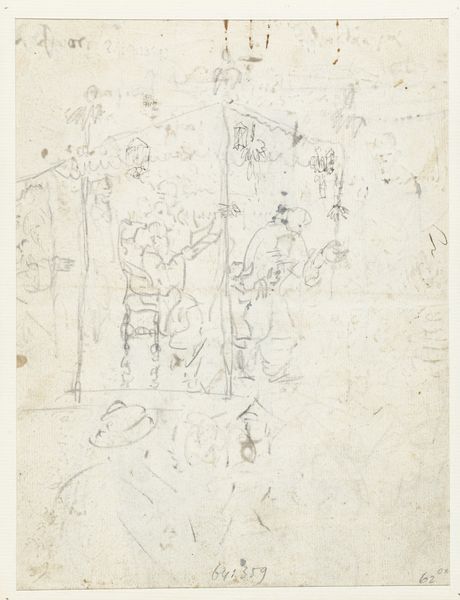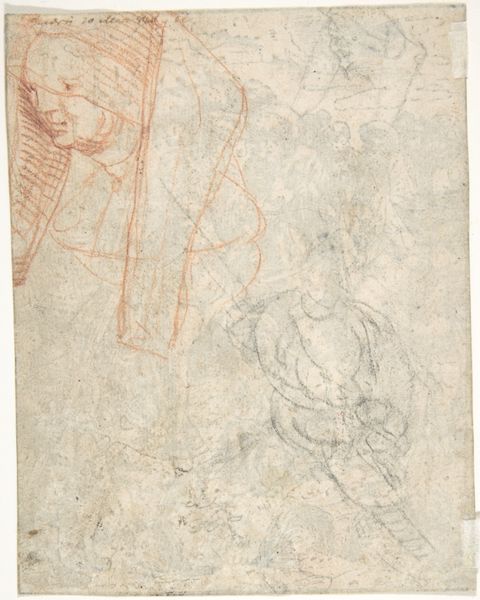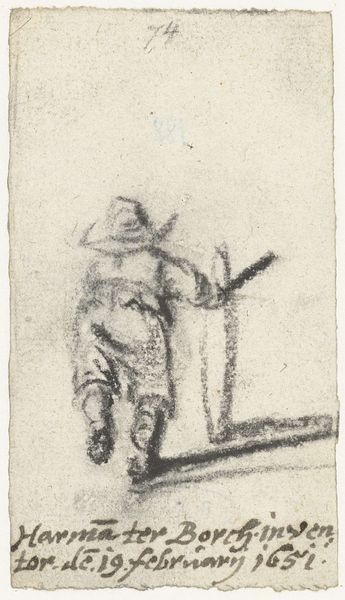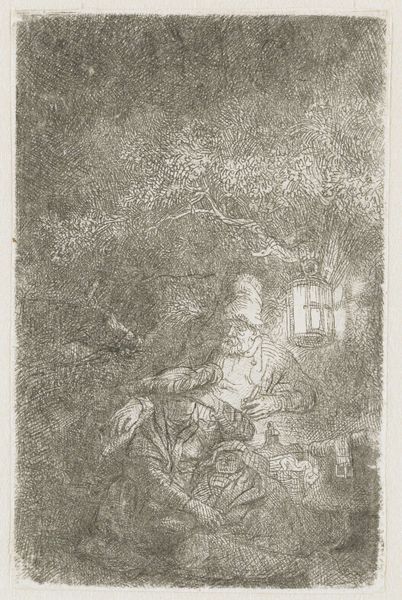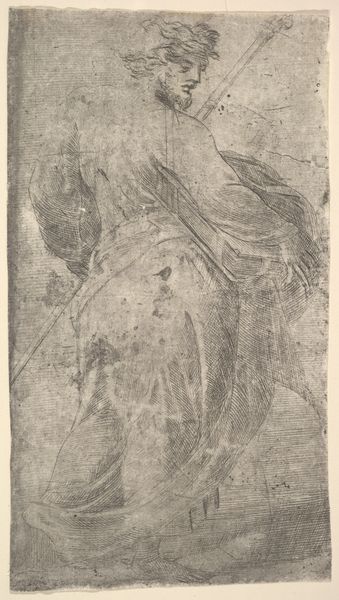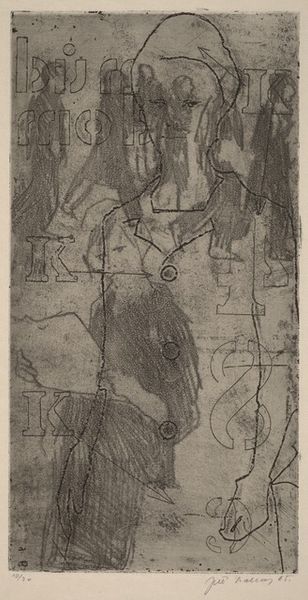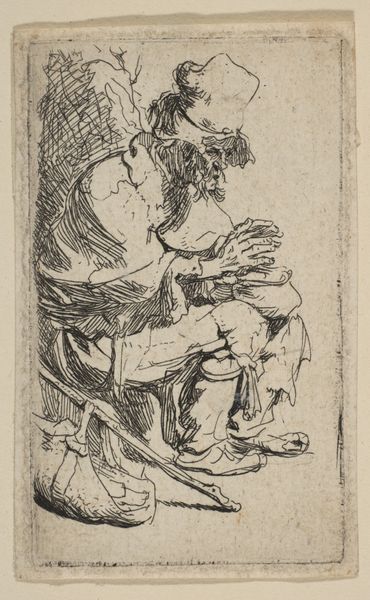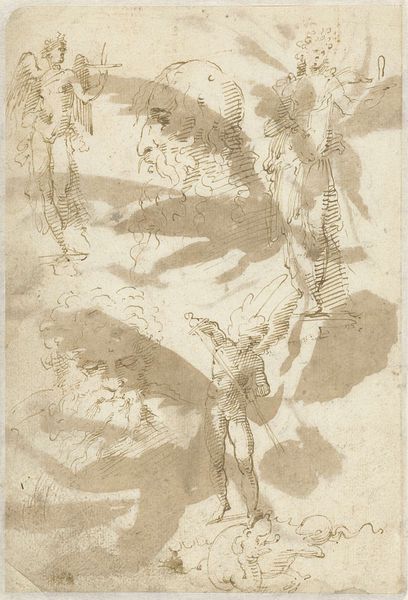
drawing, pencil, graphite
#
portrait
#
drawing
#
toned paper
#
light pencil work
#
rough brush stroke
#
pencil sketch
#
incomplete sketchy
#
mannerism
#
figuration
#
form
#
pencil
#
graphite
#
history-painting
#
academic-art
Dimensions: height 94 mm, width 143 mm
Copyright: Rijks Museum: Open Domain
This fragment of a study for a man's portrait was made by Cigoli, likely in the late 16th or early 17th century, using black chalk on paper. The material qualities of black chalk lend themselves beautifully to studies like this one. Notice the velvety texture and the soft, diffuse lines. Chalk allowed Cigoli to build up tone and volume gradually, to model light and shadow with subtlety, capturing the nuances of his subject's clothing. What strikes me most is how this medium reveals the artist's working process. You can almost see Cigoli feeling his way around the form, making corrections and adjustments as he goes. This emphasis on process is important because it shows the level of work involved in the production of this artwork. By focusing on these materials and methods, we move beyond conventional notions of “high art” and gain a richer understanding of Cigoli's creative vision.
Comments
No comments
Be the first to comment and join the conversation on the ultimate creative platform.
